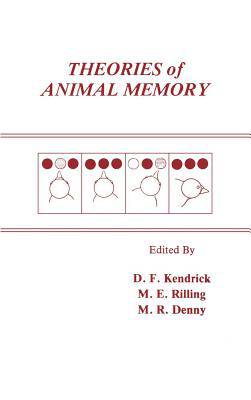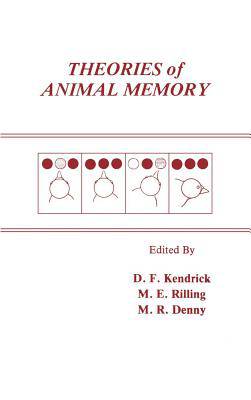
Bedankt voor het vertrouwen het afgelopen jaar! Om jou te bedanken bieden we GRATIS verzending (in België) aan op alles gedurende de hele maand januari.
- Afhalen na 1 uur in een winkel met voorraad
- In januari gratis thuislevering in België
- Ruim aanbod met 7 miljoen producten
Bedankt voor het vertrouwen het afgelopen jaar! Om jou te bedanken bieden we GRATIS verzending (in België) aan op alles gedurende de hele maand januari.
- Afhalen na 1 uur in een winkel met voorraad
- In januari gratis thuislevering in België
- Ruim aanbod met 7 miljoen producten
Zoeken
Theories of Animal Memory
€ 76,45
+ 152 punten
Omschrijving
First published in 1986. This book is concerned with the transition of animal learning from a strict stimulus-response (S-R) approach to a more cognitive approach. In response to noted past research that was guided by some perspective or theoretical framework based partly on a combination of research results and individual opinions about what animals can do. This volume was thus conceived as a collection of chapters in which animal memory researchers could publicly state their opinions about animal memory, with little concern for substantiating them with test data. This volume is organized in three main sections of three chapters each. The first section, The Grand Approach, is a collection of chapters with a meta-theoretical perspective. The second section, Memory Processes, presents three chapters concerned with the processes, properties, and mechanisms of short-term memory in animals. The third section, Theoretical Issues, presents two highly developed theories of animal memory, one based on pigeon short-term memory experiments and one based on delayed alternation in the rat
Specificaties
Betrokkenen
- Uitgeverij:
Inhoud
- Aantal bladzijden:
- 224
- Taal:
- Engels
- Reeks:
Eigenschappen
- Productcode (EAN):
- 9780898596366
- Verschijningsdatum:
- 1/04/1986
- Uitvoering:
- Hardcover
- Formaat:
- Genaaid
- Afmetingen:
- 152 mm x 229 mm
- Gewicht:
- 462 g

Alleen bij Standaard Boekhandel
+ 152 punten op je klantenkaart van Standaard Boekhandel
Beoordelingen
We publiceren alleen reviews die voldoen aan de voorwaarden voor reviews. Bekijk onze voorwaarden voor reviews.








